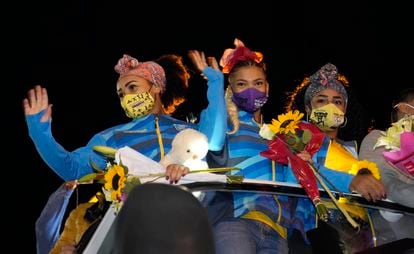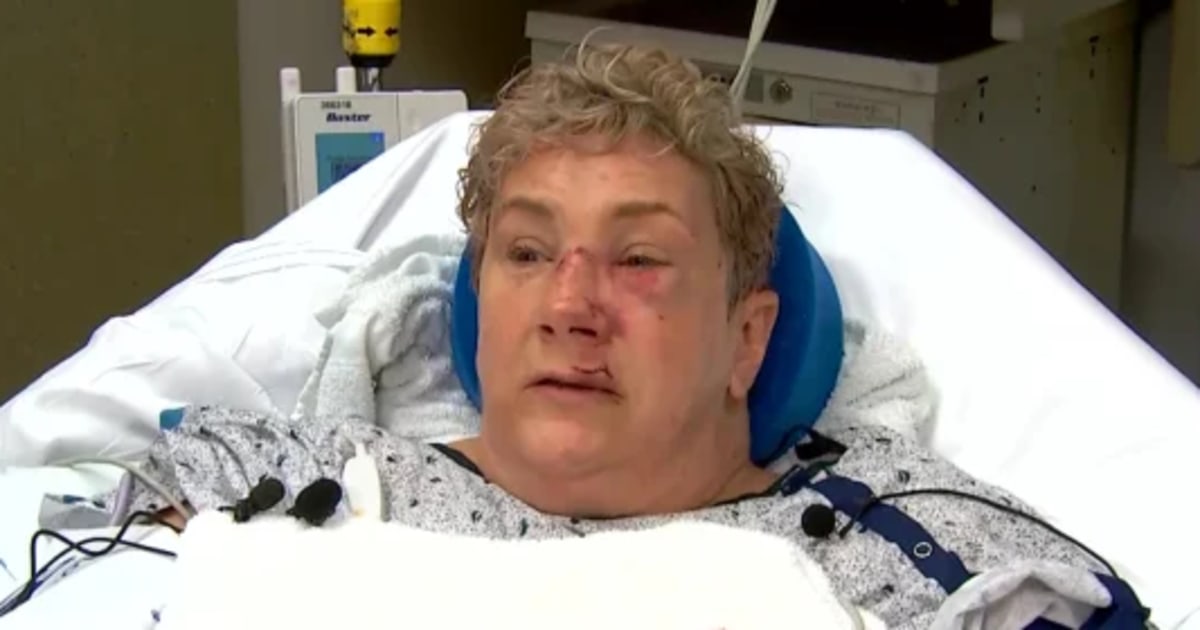Ecuadorian Neisi Dajomes competes in the 76-kilo category on August 1 in Tokyo.EDGARD GARRIDO / Reuters
Two of the strongest women in the world are under 25 years old, they are Ecuadorian and they are black.
The phrase "be strong as a girl" accompanied the glory of Neisi Dajomes and Tamara Salazar in Tokyo 2020. Four words that define athletes, but also hide a reality that is not seen in Ecuador: for a black girl, being strong is practically a survival mechanism.
Can not it be a different way.
The weight that Neisi and Tamara lifted on their shoulders (something like a panda each) and that earned them a gold and silver medal, respectively, also symbolizes the burden that Afro-Ecuadorians have historically carried.
Being a woman, being black and being poor.
Admiring them on Olympus is a signal for others to be convinced that it is possible.
More news
Ecuador breaks its sports glass ceiling
Rebeca Andrade, an exception in a country that does not value sport
File: Neisi Dajomes wants to put the world on his shoulders
Far from any sentimental reflection, his milestone at the Olympic Games opened the discussion around the situation of Afro-women in countries like mine.
A reality characterized by discrimination and invisibility.
That today millions of Ecuadorians proudly presume their legacy reflects that we face unequal opportunities from the moment we are born.
Ecuador is the fourth country in South America with an Afro-descendant presence after Brazil, Colombia and Venezuela.
Official figures indicate that we are more than 7% of the population.
It is hardly said that we represent the second minority, below the Montubios and above the indigenous.
There is no talk of blackness. Our presence in the media is characterized by stigmatization and caricature. Stereotypes link blacks to crime and black women to domestic work. They bind them to the wild and the aboriginal. "You lazy and brute niggers!" "You black shit!" they are expressions in which "black and black" are insults.
Neisi and Tamara are part of that more than half a million Afro-Ecuadorians. Thanks to them, for the first time, the media massively bet even to highlight its aesthetics. Much of the media narrative focused on what was wrongly called "headbands" and "kerchiefs" to refer to the turbans they wore in the competition. How many of those articles were written by black women? I found one. Reading Whitney Rodríguez (communicator, student of race, sex, diaspora and sexuality), I learned that this garment has different meanings, depending on the tribe that uses it in some African countries. “However, the colony gave her another concept and they were forced to wear it to cover their hair and not be attractive to 'uncontrollable sexual desires',” she wrote.
Neisi Dajomes, Angie Palacios and Tamara Salazar are received on August 4 at the Atahualpa stadium in Quito after returning from Tokyo. Dolores Ochoa / AP
I don't think Neisi and Tamara realized that their victory would also be political and would be read as a vindication.
Their medals are hope in a country, in a region (Latin America), where educational systems do not promote the recognition of those identities.
At the age of 32, I proudly see them show off their frizzy hair and transform - perhaps without wanting to - what has been called "bad hair".
They taught me that you have to control it, temper it, grab it and that I can't take it loose.
Two black women made us cry with joy and made us repeat that history is often unfair to women. It is more so with those who have historically been on the sidelines. For this reason, for other young women the mere existence of these athletes is a reference that feels so close and so much theirs that it inspires.
I don't remember any kind of history where the legacy of Afro characters has been highlighted. What is not named does not exist, so it is urgent to mention that today we are talking about this thanks to the fight for freedom and the rights that María del Tránsito Sorroza did in Ecuador (midwife who obtained her freedom thanks to her ability to attend births), Martina Carrillo (slave who achieved improvements in working conditions) or María Chiquinquirá (slave who fought for the natural right to be free). In a few years, hopefully, the names of Neisi Dajomes, Tamara Salazar and her companions Angie Palacios and Alexandra Escobar will appear in the books to tell the girls that their skin color is not a condemnation.
In the XXI century, 7.9% of Afro-descendant women in Ecuador are illiterate.
More than half earn their living in unstable situations, linked to exploitative and insecure working conditions.
Most live in two of the poorest provinces in the country, Esmeraldas (north coast) and Carchi (northern highlands).
I know what Esmeraldas is because I was born there and my maternal family is there.
I have watched my cousins' dreams melt under the heat of a paradise plagued by poverty and violence that seeps from the border.
Almost 20% of them live in conditions of extreme poverty.
The stories of Neisi and Tamara are largely an example and an exception.
In Ecuador, six out of 10 women have experienced some type of aggression.
Among black women, the figure is seven out of 10. Neisi and Tamara immortalized that our strength — that of black women — is an act of resistance.
Desirée Yépez
is an Ecuadorian journalist.
Subscribe here to the
EL PAÍS América
newsletter
and receive all the informative keys of the current situation in the region.











/cloudfront-eu-central-1.images.arcpublishing.com/prisa/KMEYMJKESBAZBE4MRBAM4TGHIQ.jpg)


